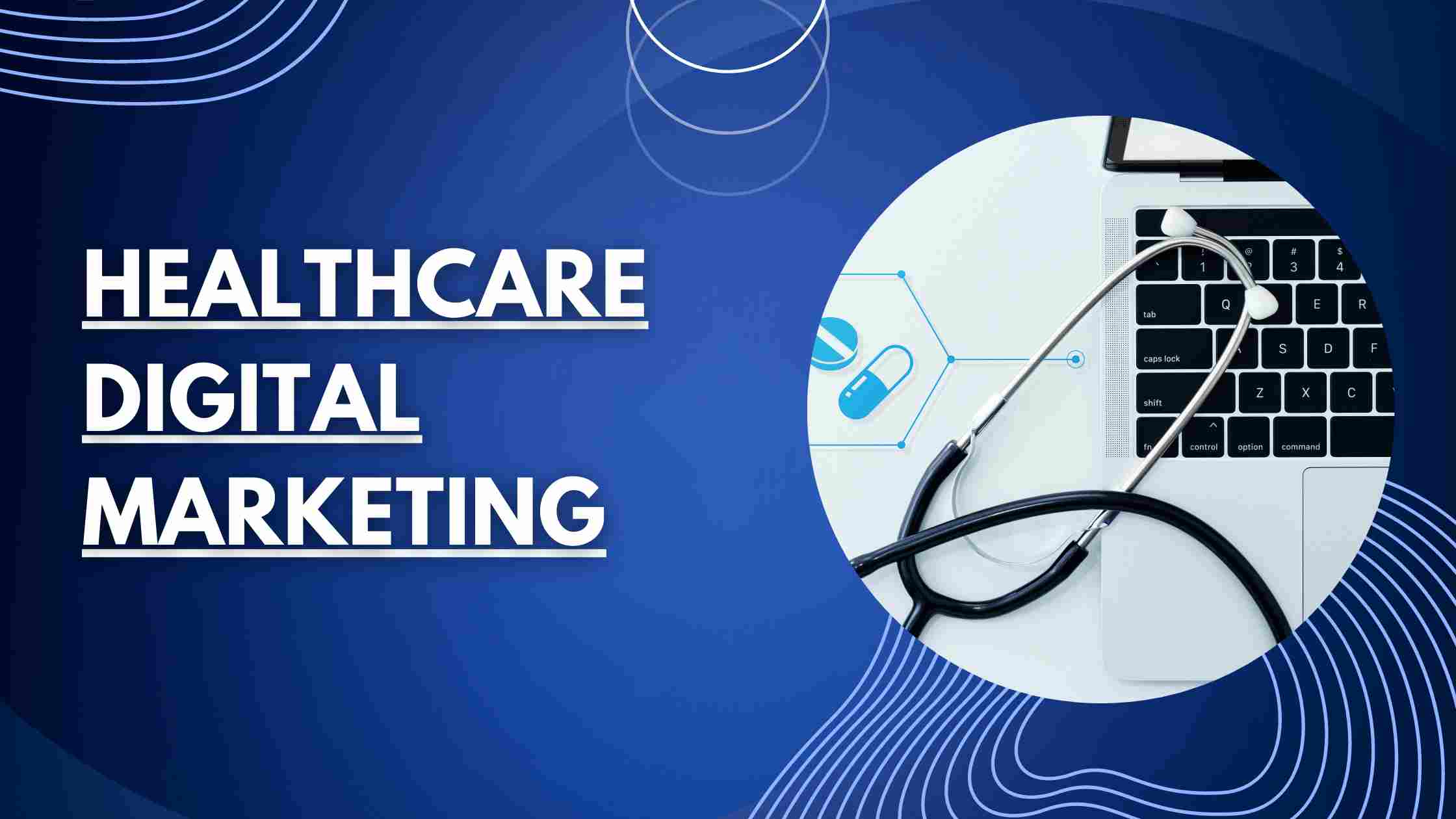
Healthcare Digital Marketing: Accelerate Patient Engagement and Growth
Digital marketing has revolutionized the healthcare sector by enabling companies to engage, educate, and connect with customers in previously impossible ways. The term “Healthcare Digital Marketing” refers to various strategies and methods that use digital platforms to promote healthcare services, improve patient experiences, and achieve better health results. In this essay, we will investigate the fundamental components of digital marketing in the healthcare industry and its tremendous impact on patient engagement. We will address how Healthcare Digital Marketing tactics alter the healthcare landscape and empower people to take charge of their health. These strategies include search engine optimization (SEO), and content marketing (CM), social media campaigns (SMC), and telemedicine.
Creating an Informative and Patient-Centric Online Presence:
Building an informed and patient-focused online presence is the first step in an effective digital marketing strategy for the healthcare industry. This requires the optimization of websites for search engines, the creation of content that is engaging, and the provision of information to patients that is pertinent and of value. Patients will have an easier time locating the information needed if healthcare organizations implement search engine optimization (SEO) strategies on their websites. This will allow patients to find the information they need more quickly. Patients can be educated on various health topics, encouraged to engage in preventative care, and given answers to common concerns through high-quality material such as blog articles, infographics, and videos. Establishing trust and credibility with their audience is possible for healthcare practitioners who make their resources easily accessible and focused on the needs of patients.
Leveraging Social Media for Patient Engagement
Platforms for social media have evolved into highly effective tools that healthcare organizations may leverage to communicate with patients, provide informative content, and develop communities. Social media campaigns allow healthcare professionals to disseminate instructional content, encourage adopting healthy lifestyle habits, and provide information regarding recent developments in services and facilities. In addition, using social media makes it possible to communicate directly with patients, which can be used to address their issues, answer their questions, and cultivate a sense of trust and accessibility. In addition, social media platforms offer a channel for patients to share their experiences through reviews and testimonials, which helps establish credibility and highlight positive outcomes. It is possible for healthcare firms to acquire insights into the preferences, behaviours, and wants of patients by applying social media analytics. This enables healthcare organizations to adjust their marketing efforts more successfully.
Harnessing the Potential of Telemedicine
In recent years, there has been a phenomenal expansion in the field of telemedicine, which refers to providing medical treatments to patients remotely through digital channels. Telemedicine is an essential component of digital marketing for the healthcare industry. It makes medical treatment more accessible and easy for patients, particularly those living in rural locations or with mobility issues. The process of virtual consultations can be streamlined with digital marketing tactics, which healthcare providers can also use to increase awareness about telemedicine services and train patients on the benefits of telemedicine. This includes using targeted email marketing, internet advertising, and informative website content to reach patients who could benefit from telemedicine. Telemedicine offers healthcare providers the opportunity to broaden their service areas, cut expenses, and improve the overall happiness of their patients.
Personalizing Patient Experiences through Data-driven Marketing
Data-driven marketing is essential to digital marketing in the healthcare industry since it enables businesses to personalize their patients’ experiences and provide individualized medical care. Healthcare providers can get insights into patient preferences, medical histories, and health needs by leveraging electronic health records, often known as EHRs and other data sources. These data can be put to use in the creation of individualized email marketing campaigns, the provision of relevant recommendations for healthcare services or treatments, and the introduction of focused educational resources. In addition, marketing that is driven by data enables tailored communication and follow-up, which results in improved patient satisfaction and stronger relationships between patients and their healthcare providers.
Embracing Mobile Health Technologies
The wide use of mobile has created favourable conditions for developing mobile health technology, also called mHealth. Healthcare businesses can involve patients in the processes of their healthcare journeys by including mHealth in their digital marketing strategy. This can include developing mobile applications that provide access to medical records, medication reminders, appointment scheduling, and symptom trackers. In addition, mobile apps offer patient education opportunities by enabling medical professionals to send up-to-date and individualized health information straight to patients’ smartphones. By utilizing mHealth technologies, healthcare organizations may allow patients to take role in managing their health, ultimately leading to better health outcomes and higher patient satisfaction.
Building Trust and Credibility with Patient Testimonials and Reviews
Trust and credibility are necessary components in the healthcare sector. Thanks to digital marketing, patients now have more opportunities to voice their opinions about a service or product via testimonials and online reviews. The provision of testimonials by contented patients can be actively encouraged by healthcare organizations to highlight the high quality of treatment provided, the skill of healthcare personnel, and the favourable results. These testimonies can be published on websites, social media platforms, and online directories to help prospective patients develop a sense of trust in the healthcare provider. In addition, patients’ decisions can be strongly impacted by the reviews they read online, which can be found on websites explicitly devoted to healthcare, such as Google and Yelp. It can further boost the organization’s reputation and trustworthiness by engaging with patients who submit reviews, resolving their problems or queries, and displaying a dedication to patient satisfaction.
Ensuring Compliance with Privacy and Security Regulations
Healthcare institutions must prioritize patient privacy and data security in the digital age. To secure patient data from unauthorized access or breaches, healthcare companies should establish strong security measures. Encrypting data communications, deploying secure servers, and teaching employees privacy protocols are all part of this. Healthcare firms can reassure patients that their health information is secure by adhering strictly to privacy and security rules, encouraging trust and confidence in their digital marketing activities.
Conclusion
Healthcare digital marketing has changed how healthcare firms interact with people and provide services. Healthcare providers may improve patient engagement and health outcomes by giving patient-centric online experiences, utilizing social media participation, embracing telemedicine and mHealth technologies, personalizing patient experiences, and emphasizing patient trust and data protection. As the digital landscape evolves, healthcare organizations must stay on top of emerging trends and technologies to ensure they leverage the power of digital marketing to revolutionize the healthcare industry and empower patients to take an active role in their health management.


